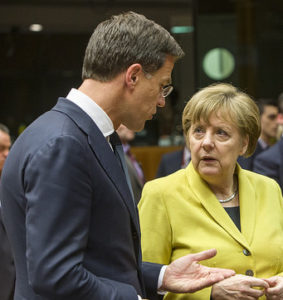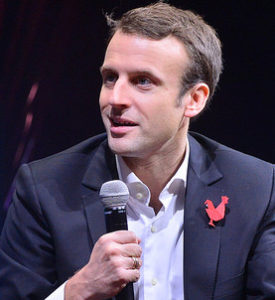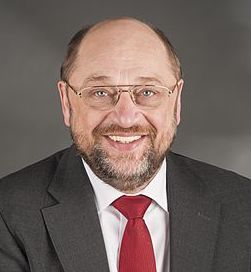Michael Crowley, the Senior Foreign Affairs Correspondent for Politico, recently wrote a scathing article. The title of piece posted in the March/April digital issue of the magazine succinctly summarized the article’s primary message, “The Man Who wants to Unmake the West.
That article also assessed the current tumultuous political climate in Europe.
Some of the events that Crowley referred to have occurred in Europe over the past few days; and others will take place in the near future. Most center around the upcoming elections and individuals who want to govern for the next few years.
What has happened so far?
Netherlands

PM Rutte and German Chancellor Angela Merkel
Two weeks ago, on Wednesday the 15th of March, the Dutch voted to keep pro-EU Mark Rutte as their prime minister. But populist right winger Geert Wilders, who had called for a Nexit (Netherlands EU exit), only narrowly lost.
And, some say Wilders is still a winner.
Since his party had such a strong showing — it is now the second largest in parliament — it’s expected to be able to influence the government’s direction even without being invited to be part of a ruling coalition.
UK
The Brexit vote is also a done deal; the referendum was last June. But decoupling from the EU has been allotted two years.
On Wednesday of this week, the 29th of March 2017, the UK will officially begin the process by triggering Article 50.
The leader of the Scottish National Party, Nicola Sturgeon, once again called for an independent Scottish EU referendum. The International Business Times (IBT) said,
“The SNP leader wants to hold another plebiscite on Scotland break away from the rest of the UK between autumn 2018 and spring 2019.”
IBT added that the latest opinion poll showed 53% of Scottish voters would reject splitting from the rest of the UK. That’s a majority but not an overwhelming one.
France
The first round of the French presidential election is scheduled for next month on the 23rd of April 2017. The BBC website covered the contenders in its article, “French election 2017: Who are the candidates“?

Emmanuel Macron
Anti-EU, right-wing populist, nationalist Marine Le Pen, is still one of two front runners, but pollsters say the pro-EU Emmanuel Macron has passed Francois Fillion as the other major candidate in the current field of five.
There, just like in the Netherlands before its election, 40% of the voters are still said to be undecided. It too is predicted to be a close and tough to call election.
Germany
On the 19th of March, SPD’s pro-EU former German foreign Minister, Frank-Walter Steinmeier, officially became president.
And on the 24th of September, Germans will decide between the current chancellor and others seeking the job.

SPD’s Martin Schulz
SPD’s charismatic new head, Martin Schulz, is thought to stand a real chance of ending Chancellor Angela Merkel’s 11 plus years in office.
DW News reported on his election as SPD leader in its article, “SPD head: Schulz enjoys ‘enormous support’“.
There’s no question where he stands on the topic of the European Union. A good friend of the President of the EU Commission, Jean-Claude Juncker, Schulz served as President of the EU Parliament from January 2012 to January 2017.
The right-wing populist, nationalist, Eurosceptic AfD party in 2017 is not considered a big threat to either the CDU, the Chancellor’s party, or to Schulz’s SPD.
Some thought the AfD stood a good chance in 2017 of becoming Germany’s 3rd largest; the CDU and SPD are in first and second place. But AFD’s popularity has declined ever since AfD politician Björn Höcke’s controversial speech in January.
Still, some parts of the AfD stance on certain issues, like the refugee issue for starters, are increasingly popular.
On the 22nd of March, Stratfor (Strategic Forecasting) published the piece, “Centrist Contenders Arise in Europe“. The article looks at the upcoming elections in France, Germany, and Italy and analyzes what that could mean for each country and the EU.
Addressing the AfD and Germany’s September election, Stratfor remarked,
“The main question instead is the extent to which AfD will influence the agenda of the moderate parties.”
Paris, the next one to watch
The expected runoff between the two top candidates chosen in next month’s French presidential election is scheduled for the 7th of May.
The world will be watching to see if France will follow the current trend Austria started back in December — to elect pro-EU leaders but by narrow margins.
As with the Dutch election that just took place, who’s gets to be the new president of France will speak volumes about whether the nation wants to copy its UK sibling and say adeui or remain an integral part of the EU.
Stratfor concluded its piece on the coming national elections in the EU with this cautionary remark,
“Should moderate forces remain in power, a massive crisis in the eurozone would be temporarily averted. But that does not mean that the consequences of a decade of economic and political crisis will simply fade away.”
May 14 Update: In France, Pro EU Emmanuel Macron has become the president by significantly beating his rival, Marine Le Pen, in the national election held the 7th of May 2017. For now, a new EU crisis has been avoided.
In the UK, Prime Minister Theresa May has called for a snap election. The next general election was expected in 2020 but is now scheduled for the 8th of June 2017. It’s intended to assure, among other things, that UK’s prime negotiators won’t be distracted by a major political campaign later in the Brexit negotiation process.
Photo Credits: Dutch PM courtesy of EU Council, License: CC BY-NC-SA 2.0; French E. Marcon image courtesy of LEWEB, License: CC BY 2.0; Germany’s M. Schulz by Foto-AG Gymnasium Melle, License: CC BY-SA 3.0